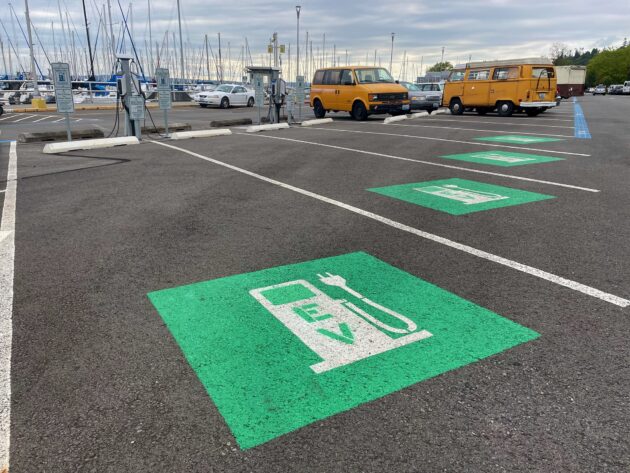Seattle Powers Up: The Battle Over Clean Energy and Carbon Caps
The Heart of Washington’s Climate Crusade
It’s no secret that Washington State has become a battleground in the war against climate change. With Seattle’s tech giants like Microsoft and Amazon pledging to slash their carbon footprints and pouring millions into innovative clean energy solutions, the region is buzzing with green energy startups and bold commitments from elected officials to reduce carbon emissions. But here’s the kicker: an up-and-coming ballot initiative, known as Initiative 2117, could throw a wrench in these grand plans. This proposal aims to dismantle regulations that require big polluters to cough up cash for their carbon emissions. Suddenly, Washington’s green future looks a bit less certain.
When Tech Giants and Environmentalists Collide with Policy Makers
Last Wednesday, a hefty $11 million campaign said a firm “No” to Initiative 2117, enlisting the help of tech behemoths, local commerce chambers, and over a hundred other allies from various sectors. Their message? This initiative could put the brakes on Washington’s thriving climate tech sector and slow down the region’s switch to a greener economy. Imagine slamming the door shut on innovative climate solutions—doesn’t sound like the future we’re dreaming of, right?
And let’s not forget the investments already made under the Climate Commitment Act. We’re talking nearly $2.4 billion raised from carbon permit auctions, funding everything from utilities’ cost shields for customers to ambitious climate projects benefiting everyone from local communities to the tech industry itself. “You have a whole economy based on the Climate Commitment Act,” says Senator Joe Nguyen, pointing out that such initiatives not only stir local innovation but also attract federal dollars to the state.
A Stellar Example: The Expanding World of Clean-Tech Factories
Take the opening of a clean-tech factory by Seattle-based First Mode, with key figures like Governor Jay Inslee and industry influencers cutting the proverbial (and literal) ribbon. This is precisely the type of innovation and job creation fueled by the auction funds under the Climate Commitment Act. It’s a brilliant showcase of how investing in green infrastructure benefits the state, its economy, and the planet.
The Debate Over Costs: Who Pays for a Cleaner Future?
But not everyone’s on board. Critics of Initiative 2117 argue that the bill, essentially a carbon cap-and-trade system, unfairly burdens consumers with higher gas and energy prices. Yet, it’s hard to ignore the powerful counterargument: why shouldn’t the polluters—the oil and gas giants—foot the bill for the environmental damage they’ve notoriously profited from?
Interestingly, while gas prices have indeed risen (a usual victim of seasonal fluctuations and market dynamics), the gap between Washington and its neighbor Oregon suggests that the carbon policy’s direct impact might be overblown by critics. Moreover, the introduction of assistance programs for low-income households illustrates efforts to mitigate the economic repercussions on residents.
The Long Game: What’s at Stake with Initiative 2117
More than a debate over immediate costs, the battle over Initiative 2117 and the Climate Commitment Act touches on the future of our planet. Banning future carbon cap systems, as proposed by the initiative, could handicap our ability to combat climate change effectively. With the window for action rapidly closing, the stakes couldn’t be higher. As we face increasing threats from wildfires, floods, and extreme weather events, the cost of inaction looms large.
At the end of the day, the clash over Initiative 2117 is more than a political skirmish; it’s a pivotal moment in Washington’s quest to lead on climate action. With the world watching, the outcome could shape not just the state’s environmental trajectory but also set the tone for how jurisdictions around the globe confront the pressing climate challenges of our time.




